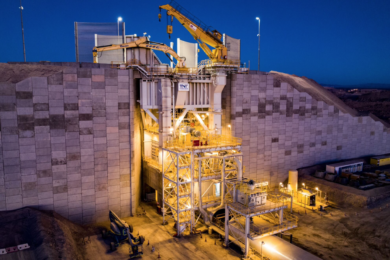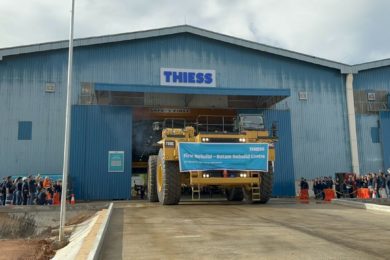The Minerals Council of Australia says the 2008-09 Budget “takes important steps in the right direction. The MCA commends the overall Budget strategy which introduces a longer term planning framework, focuses on the need to fight inflation by reining in government spending, delivers a strong surplus and tackles capacity constraints,” the Acting Chief Executive Mr Brendan Pearson said today.
“The Budget recognises the need to address skills shortages by rebuilding capacity in the education system, and the importance of renovating critical social and physical infrastructure in export corridors including in regional and remote Australia – which the MCA has long advocated.
“The Budget signals a critical shift to a focus on building new supply capacity in the Australian economy. The importance of this shift cannot be under-estimated. The Australian minerals sector is operating at the limits of its capacity. The sector’s minerals sector’s ability to expand has been hampered by chronic skills shortages, congested and poorly functioning export corridors, emerging shortages of energy and water, inadequate social and physical infrastructure in remote and regional communities, and duplicative requirements for occupational health and safety and land access and use.
If Australia is to take full advantage of near record terms of trade then we need to address these capacity constraints so the current minerals expansion driving the economy is stronger for longer. This budget may not solve these problems overnight, but it signals a determination on the part of the Government to ensure Australia does not miss the opportunities offered by the China-led expansion in commodity markets.”
In specific terms, the MCA particularly endorses the following initiatives:
- The commitment to the renovation of Australia’s social and physical infrastructure, through the establishment of the Education Investment Fund (A$11 billion) and the Building Australia Fund (A$20 billion). If Australian industry, including the minerals sector is to remain competitive, it is imperative that public infrastructure be modern and efficient.
- The commitment to a major expansion of vocational training places (630,000 places over five years), and the Government’s undertaking that these places “must be driven by individual and business demand”. Given projections that the minerals sector will need 50,000 extra skilled tradespeople by 2015, this is a critical initiative
- The commitment to in school-based Trades Training Centres, with funding of A$2.5 billion over 10 years. This initiative is a complement to the development of Minerals Industry Skills Centres in key mining regions to develop the skills required for the industry over the next decade
- Reducing students’ HECS fees for science and maths and incentives for graduates to take up employment in related occupations including teaching
- The range of taxation and childcare initiatives to promote workforce participation are welcome, and should assist the minerals sector to attract greater female participation
- The commitment to close the gap in Indigenous disadvantage is fundamentally important for the minerals sector, many of whose operations neighbour Indigenous communities. Although the minerals sector is already a significant employer of Indigenous Australians, the sector’s expansion can be a major contributor to sustained economic development in these communities
- the National Clean Coal Fund (A$500 million over seven years) recognises the reality that there will not be a genuine solution to climate change without low emissions clean coal technologies. The fund will leverage billions of dollars of new private investment in clean coal and low emissions technologies projects across Australia
- The Government’s A$12.9 billion Water Plan should provide new impetus for the development of a genuine national water trading market. This is a critical issue for an industry that although responsible for just 2% of water consumption needs secure supplies of water to enable it to expand
- Additional funding to streamline the temporary 457 working visa scheme, as well as the 31,000 strong increase in permanent skilled migration will help provide acute relief for skills shortages in the minerals and related sectors.
“There is more to be done. Not all issues can be solved in one Budget and the Federal Government has ordered a number of important reviews of vital concern to the minerals industry, including: Australia’s Future Tax System, Higher Education, Indigenous Economic Development. Many of the key reforms to address capacity constraints will not require new spending initiatives. Instead the solution to many of these problems lies in better Federal State co-operation, the elimination of duplicative and contradictory regulatory processes, institutional and intellectual capacity building, the increased efficiency and operability of the native title system, and more appropriate competition policy settings. The Rudd Government has already taken important initial steps in these areas, but these must be sustained and intensified.”
The MCA says it will continue to advocate for Labor to fulfil its election commitment to introduce a “flow through share scheme” for junior explorers.









